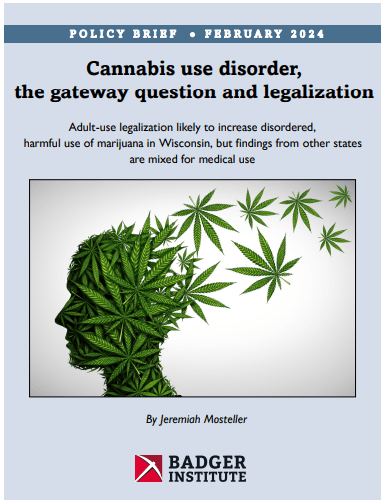Findings are mixed, however, for medical-only legalization, and opioid overdoses are likely to decline
Editor’s note:
Research is clear that legalizing adult recreational marijuana use increases the drug’s use. What are the consequences?
In this fifth installment in our “real facts” series, Jeremiah Mosteller looks at the available research. Some conclusions:
Legalizing all adult use is likely to increase the uncontrolled and harmful use of cannabis — that is, “cannabis use disorder” — in Wisconsin. Researchers are more divided on whether legalizing only the medical use of marijuana has similar effects.
But adult recreational legalization also is likely to reduce opioid use and overdoses, and there is evidence that legalizing cannabis in other states has reduced alcohol consumption.
This part of our series follows previous installments:
An introduction to the project from Mike Nichols.
A finding that Wisconsin has, without a deliberate change in policy, drifted into a de facto decriminalization as prosecution for marijuana offenses has become rare in much of the state, from Mosteller.
A finding that legalization in other states has led to either neutral or positive effects on crime, but an increase in traffic crashes, from Mosteller.
A finding from Mosteller that legalization for recreational or medical use increases the use of the drug among adults, while research on youth use is less conclusive.
A finding that, in other states, legalizing cannabis for adult use reduced unemployment and increased labor force participation, and seemed to have no impact on wages but led to a reduction in workers’ compensation claims, again from Mosteller.
Submit a comment
"*" indicates required fields





